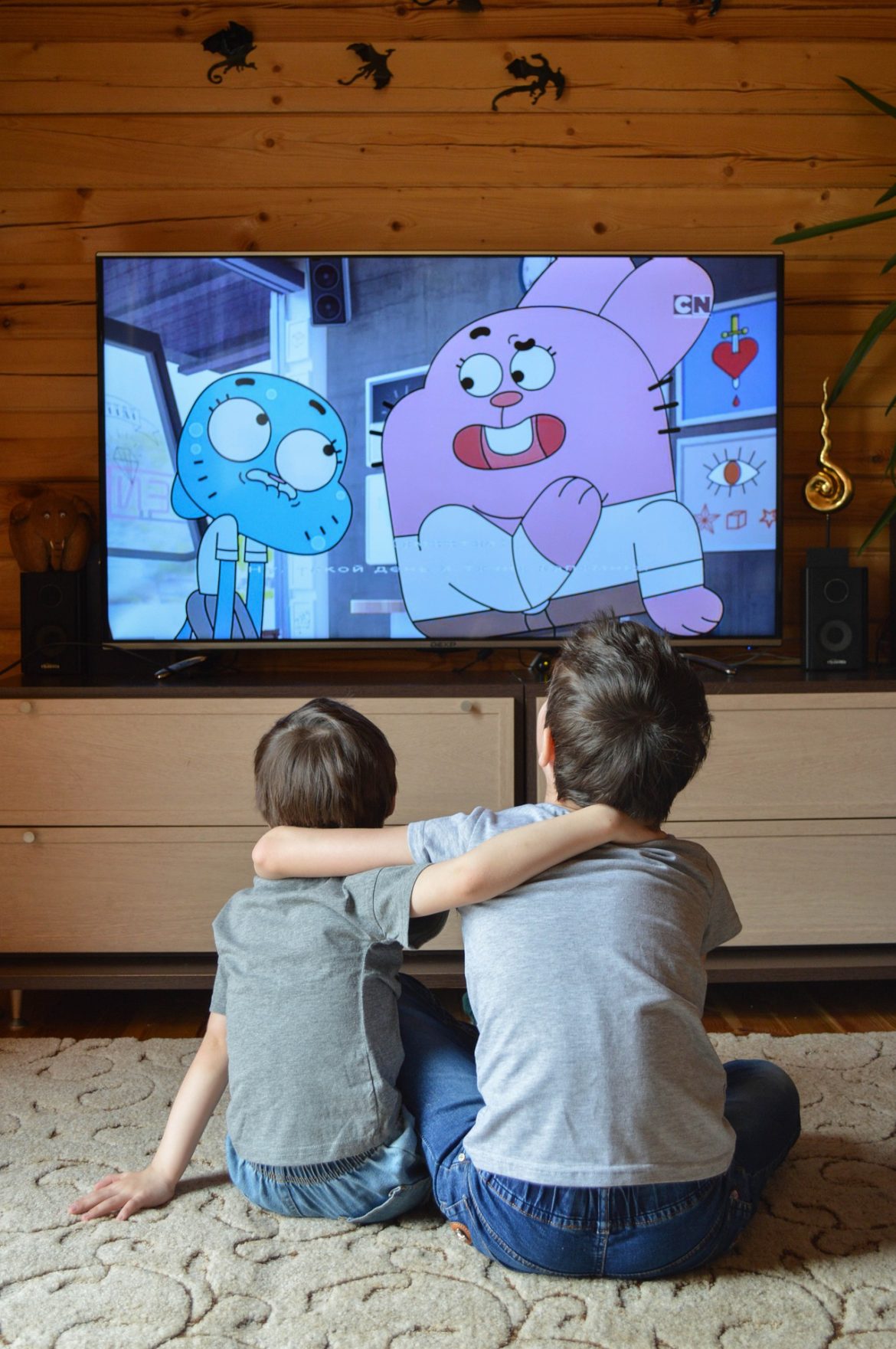A common misconception is that TV can teach children a language. But just having children watch TV in the minority language will most likely not result in them becoming speakers of that language. Why? The reason is pretty simple: TV is a type of one-way communication. Children are mainly listening, but they do not have to speak when watching TV. Therefore, TV, movies or videos are an excellent training tool for practicing comprehension (Harding-Esch & Riley, 2003). In other words, watching TV can help expose children to a range of words, accents, voices, genres, and cultural aspects that we cannot provide in our everyday conversations at home.
But screen time should only be used as supplemental exposure. It should be used in addition to speaking with children in person. In fact, research has found that live interaction such as reading or talking to a child is much more effective than exposure to recorded sounds one finds in television, movies, or online videos (Kuhl, Feng-Ming, & Huei-Mei, 2003).
Main takeaway
TV is a good resource for exposing children to a range of language features in the minority language. Plus, it can help children practice their comprehension. But by itself watching TV will not be as effective as speaking with a real person. The more you talk to your child or read to your child, the more your child will actively use the minority language. So maybe make it a habit of watching TV shows together. That way, you can talk about what you watched later on.
References:
- Harding-Esch, E. & Riley, P. (2003). The bilingual family—A handbook for parents. Cambridge: Cambridge University.
- Kuhl, P., Feng-Ming, T., & Huei-Mei, L. (2003). Foreign-language experience in infancy: Effects of short-term exposure and social interaction on phonetic learning. Proceedings of the National Academy of Sciences of the United States of America, 100(15), 9096–9101. https://www.ncbi.nlm.nih.gov/pmc/articles/PMC166444/

